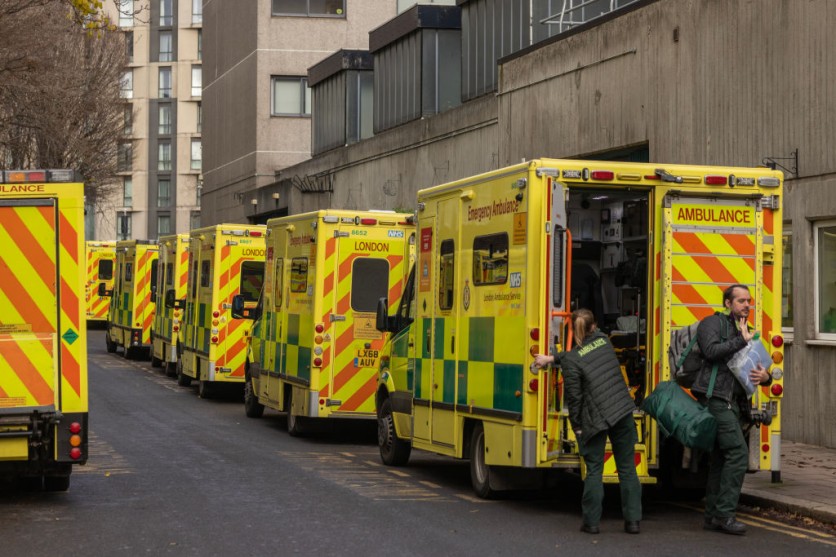The present crisis in the Accident and Emergency (A&E) sector is significantly more severe than previous ones, according to the head of the British Association for Emergency Medicine. And this is, by no doubt, alarming.

Addressing A&E Hurdles
It is absurd to blame the present situation on the pandemic, said Dr. Adrian Boyle, since the problem has been worsening for over a decade. Now, ambulances are waiting outside hospitals, and beds are scarce.
As per an ITV News report, Dr. Boyle attended UK Prime Minister Rishi Sunak's emergency discussions with health experts on Saturday, Jan. 7, trying to relieve the National Health Service (NHS) winter crisis.
He remarked, "We are really pleased it is being acknowledged at the highest level and pleased it is being recognized as a crisis because there is a crisis in emergency medicine."
As the number of people hospitalized with flu continues to rise, the average wait time for ambulance handoffs has reached a record high.
"What we are seeing is that if you go into emergency departments, you will see people being looked after in inappropriate areas and long waits to be admitted," Prime Minister Sunak said during an appearance on Sky News' Sophy Ridge on Sunday, Jan. 8.
"If you go into the wards, they are full. Fundamentally, the big problem we have got is that we don't have enough beds. Our hospitals are too full for us to do the jobs we need them to do."
Related Story : Oxygen Supplies Running Dangerously Low in UK's NHS Hospitals Amid Covid-19 and Winter Pressures
Current Predicament
Some of the NHS's top physicians have reportedly expressed concern that the system is on the brink of collapse because so many hospitals' emergency rooms are overburdened.
The healthcare system is under extreme strain due to a combination of factors, including a wave of strikes and pandemic levels of flu and coronavirus.
There was a record low in the number of patients discharged from hospitals in England last week.
Dr. Boyle blames widespread staffing shortages in the NHS, a lack of beds and capacity, and inadequate social care for the reduction in emergency care quality.
When asked whether he thought things might change, he said yes, adding that improvement is possible if there is political will.
As Dr. Boyle put it, the underlying causes of the issue have been there far longer than the pandemic itself, which has added a load of disturbance to hospitals."
To efficiently and appropriately utilize hospital beds, he said a number of challenges must be resolved first.
On Saturday, Sunak addressed a panel of specialists in Downing Street, including NHS England chief executive Amanda Pritchard and England's top medical officer, Professor Sir Chris Whitty.
He was cautioned that the years of delay were to blame for the failure of the rare weekend conference to alleviate the strain on emergency services.
According to a Downing Street spokeswoman, Sunak plans to ease the immediate strains while simultaneously concentrating on the long-term strengthening of the NHS.
She stated, "We want to correct the unwarranted variation in NHS performance between local areas because no matter where you live, you should be able to access quality healthcare."





